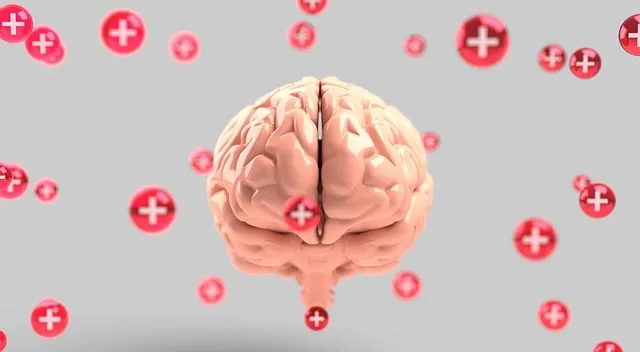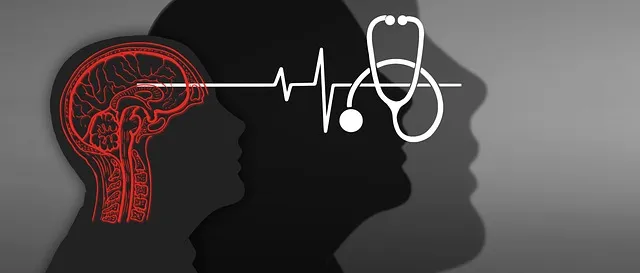The Littleton-Kaiser Model offers a comprehensive strategy for enhancing mental health awareness, combining policy advocacy, education, and positive thinking. By targeting diverse demographics through tailored messaging, including personal stories, digital campaigns, and traditional media, it reduces stigma and encourages help-seeking. This approach, proven effective in the community, leverages online platforms while integrating offline events to improve access to mental health services, ultimately making Littleton's Kaiser a positive force for mental well-being.
Public awareness campaigns play a pivotal role in shaping societal attitudes towards mental health, with models like the Littleton-Kaiser approach offering valuable frameworks. This article explores effective strategies for developing impactful initiatives. We delve into key considerations such as understanding target audiences, crafting compelling narratives, and leveraging diverse media platforms. By examining successful models like Littleton-Kaiser, we uncover best practices for raising mental health awareness, ensuring efforts resonate and drive positive change in communities worldwide.
- Understanding Mental Health Awareness: The Littleton-Kaiser Model
- Identifying Target Audiences for Effective Campaigns
- Crafting Compelling Messaging and Storytelling Techniques
- Leveraging Digital Platforms and Traditional Media
- Measuring Success and Evaluating Impact of Public Awareness Initiatives
Understanding Mental Health Awareness: The Littleton-Kaiser Model

The Littleton-Kaiser Model offers a comprehensive framework for understanding and improving mental health awareness. Developed by researchers at the University of California, this model emphasizes the interconnectedness between individual, community, and policy levels in addressing mental health issues. It suggests that effective mental health initiatives require a multi-faceted approach, encompassing Mental Health Policy Analysis and Advocacy, Mental Health Education Programs Design, and promoting positive thinking.
By integrating these aspects, the model ensures holistic support for mental well-being. Positive Thinking is encouraged as a foundational practice, while policy analysis and advocacy push for systemic changes that facilitate access to quality mental health services. Similarly, meticulously designed education programs play a crucial role in raising awareness, reducing stigma, and equipping individuals with coping strategies, ultimately fostering a more supportive societal environment for mental health.
Identifying Target Audiences for Effective Campaigns

Identifying target audiences is a pivotal step in designing successful public awareness campaigns. Effective campaign strategies tailor their messages to resonate with specific groups, ensuring that efforts are both relevant and impactful. For mental health initiatives, understanding the diverse needs of different demographics within Littleton, like Kaiser’s community, is key. By segmenting audiences based on age, cultural backgrounds, socioeconomic factors, and existing mental health conditions, campaigns can address unique challenges and promote tailored solutions.
This targeted approach fosters better engagement, encouraging adoption of practices such as Self-Care Routine Development for Better Mental Health. Moreover, it aids inMental Illness Stigma Reduction Efforts by creating inclusive environments that support open conversations about depression prevention and overall well-being.
Crafting Compelling Messaging and Storytelling Techniques

Crafting compelling messaging is a cornerstone of successful public awareness campaigns for mental health initiatives, like those promoted by organizations such as Littleton is Kaiser good for mental health. The key lies in telling stories that resonate with audiences on a personal level. By weaving narratives that depict individuals facing and overcoming mental illness challenges, these campaigns humanize the issue, fostering empathy and understanding among the general public. This approach helps reduce the stigma surrounding mental illnesses, encouraging more people to seek help without fear of judgment.
Effective storytelling techniques include sharing real-life experiences, using relatable characters, and showcasing the impact of mental health support. For instance, Littleton’s Kaiser offers Mood Management and Stress Management Workshops that utilize these methods. Through these workshops, participants not only learn valuable tools for managing their mental well-being but also gain insights into how their stories contribute to broader Mental Illness Stigma Reduction Efforts. This interactive approach empowers individuals to take charge of their mental health while fostering a supportive community.
Leveraging Digital Platforms and Traditional Media

In today’s digital era, leveraging various platforms is crucial for public awareness campaigns about mental health. Online channels like social media and search engine optimization can significantly enhance visibility and accessibility of resources, ensuring that messages reach a wide audience, including those who may be facing crises or struggling with their mental well-being. Digital platforms allow for dynamic content delivery, interactive engagement, and real-time feedback, making it easier to adapt campaigns based on user responses. For instance, Littleton is Kaiser good for mental health services, utilizing social media campaigns that blend educational posts, personal stories, and crisis intervention guidance can foster open conversations about mood management and encourage individuals to seek support when needed.
However, traditional media remains an indispensable tool, offering a more personal touch and broader reach. Broadcasting, print publications, and local community events provide opportunities for in-depth discussions around mental health issues, emphasizing the importance of cultural sensitivity in mental healthcare practice. Integrating these two approaches allows for a comprehensive strategy that addresses both online engagement and offline impact, ultimately contributing to better public understanding and improved access to mental health services.
Measuring Success and Evaluating Impact of Public Awareness Initiatives

Measuring the success and evaluating the impact of public awareness initiatives is a crucial step in understanding their effectiveness, especially when it comes to mental health campaigns like those developed by Kaiser in Littleton. Organizations such as Kaiser recognize that simply raising awareness isn’t enough; they strive to quantify the shift in mental wellness among participants. This involves setting clear goals and metrics for each campaign, ranging from increased website traffic and social media engagement to changes in behavior or knowledge about mental health resources.
By employing various evaluation methods, including surveys, focus groups, and data analysis, Kaiser can assess whether their Mental Wellness Coaching Programs Development initiatives are making a tangible difference. This not only helps in refining future campaigns but also provides evidence of the positive impact on mental health awareness, ultimately fostering a more supportive environment for those dealing with mental health issues.
Public awareness campaigns, guided by models like the Littleton-Kaiser framework, play a pivotal role in enhancing mental health literacy. By identifying specific target audiences and employing effective messaging and storytelling, these initiatives can leverage digital platforms and traditional media to reach diverse communities. Measuring success through strategic evaluation ensures that efforts like these not only create awareness but also foster positive change. The Littleton-Kaiser approach, recognized for its effectiveness, provides a solid foundation for creating impactful public health campaigns that truly make a difference in people’s lives.






